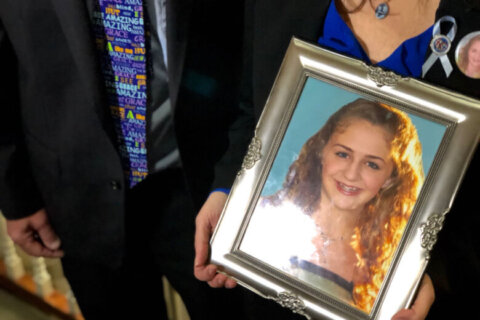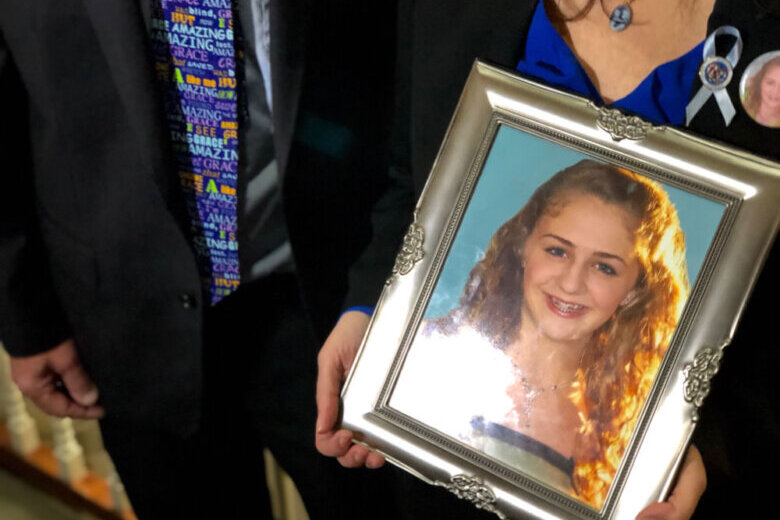
Christine McComas didn’t intend to become an advocate in Annapolis, Maryland, pushing for legislation intended to protect children like hers.
But everything changed in 2012, when her 15-year-old daughter Grace killed herself after she became a victim of a cyberbully.
“When Grace died in 2012, cyberbullying was like a new word for everybody,” McComas said.
Since then, McComas and her family lobbied lawmakers to pass Grace’s Law and Grace’s Law 2.0, bills designed to give victims and their families tools against online abuse. The updated bill provides a penalty of up to 10 years in prison to anyone who cyberbullies with the intent to cause a minor to take their own life.
This year, McComas returned to Annapolis with other families to urge lawmakers to pass “Maryland Kids Code,” a consumer protection bill that requires privacy protections for minors when they use apps and social media platforms, such as TikTok or Instagram.
The bill bars companies from tracking people under 18 and also prohibits the use of certain techniques, such as auto-playing videos or directing children with notifications, to keep them engaged online longer. McComas said that was an important feature of the bill.
“When they’re in schools, they’re getting hundreds of notifications a day; their phones buzzing, their phones ringing, texting, all of that,” she said.
The act also requires platforms to have privacy settings default to the highest levels when kids are using them.
Among the opponents to the bill is NetChoice, a tech industry trade organization that alleged the bill is unconstitutional. Carl Szabo, vice president and general counsel at NetChoice, sent a letter to Gov. Wes Moore asking him to veto the legislation. The letter states the legislation is “well intentioned” but has “significant flaws” that “chill websites’ lawful speech” and prevent innovation.
The bill passed unanimously in the Maryland House and Senate. McComas attributed that to what she called “a groundswell of better understanding of what’s going on out there.”
McComas said given her loss, and the fact that she’s now a grandmother, she continues to keep a close eye on how young people interact with technology. She said Grace’s younger sister had a very different view of social media as a result of Grace’s death.
“She and her generation, at least her friends, seemed to be very aware of their digital footprint,” McComas said. “They were aware that stuff they put out there didn’t go away.”
There are other issues tied to technology and young people that McComas said still need attention.
“What are we doing within our school systems to educate about digital literacy or media literacy?” she asked.
Among the areas that concern her, the dissemination of misinformation online.
If Moore signs it into law, the “Maryland Kids Code Act” would go into effect Oct. 1.
If you or someone you know is struggling or in crisis, help is available. Call or text 988 or chat at 988lifeline.org
Get breaking news and daily headlines delivered to your email inbox by signing up here.
© 2024 WTOP. All Rights Reserved. This website is not intended for users located within the European Economic Area.









